
The Shining is a 1977 horror novel by American author Stephen King. It is King's third published novel and first hardcover bestseller; its success firmly established King as a preeminent author in the horror genre. The setting and characters are influenced by King's personal experiences, including both his visit to The Stanley Hotel in 1974 and his struggle with alcoholism. The novel was adapted into a 1980 film and a 1997 miniseries. The book was followed by a sequel, Doctor Sleep, published in 2013, which in turn was adapted into a film of the same name in 2019.

The Big Sleep (1939) is a hardboiled crime novel by American-British writer Raymond Chandler, the first to feature the detective Philip Marlowe. It has been adapted for film twice, in 1946 and again in 1978. The story is set in Los Angeles.
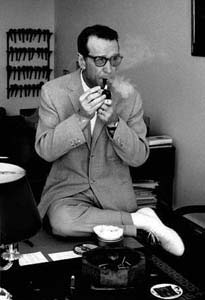
Georges Joseph Christian Simenon was a Belgian writer, most famous for his fictional detective Jules Maigret. One of the most popular authors of the 20th century, he published around 400 novels, 21 volumes of memoirs and many short stories, selling over 500 million copies.
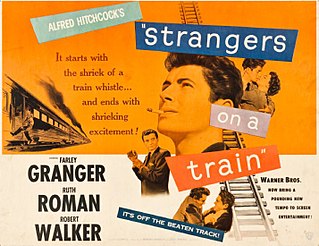
Strangers on a Train is a 1951 American psychological thriller film noir produced and directed by Alfred Hitchcock, and based on the 1950 novel Strangers on a Train by Patricia Highsmith. It was shot in late 1950, and released by Warner Bros. on June 30, 1951, starring Farley Granger, Ruth Roman, and Robert Walker.

Coffee and Cigarettes is the title of three short films and a 2003 feature-length anthology film by independent film director Jim Jarmusch. The feature film consists of 11 short stories which share coffee and cigarettes as a common thread, and includes the earlier three short films.
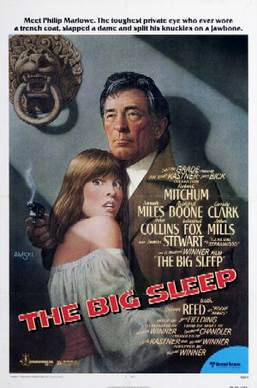
The Big Sleep is a 1978 neo-noir film, the second film version of Raymond Chandler's 1939 novel of the same name. The picture was directed by Michael Winner and stars Robert Mitchum in his second film portrayal of the detective Philip Marlowe. The cast includes Sarah Miles, Candy Clark, Joan Collins and Oliver Reed, and features James Stewart as General Sternwood.

The Informers is a collection of short stories, linked by the same continuity, written by American author Bret Easton Ellis. The collection was first published as a whole in 1994. Chapters 6 and 7, "Water from the Sun" and "Discovering Japan", were published separately in the UK by Picador in 2007. The stories display attributes similar to Ellis's novels Less than Zero, The Rules of Attraction, and, to a lesser extent, American Psycho. Like many of Ellis's novels, the stories are set predominantly in California.
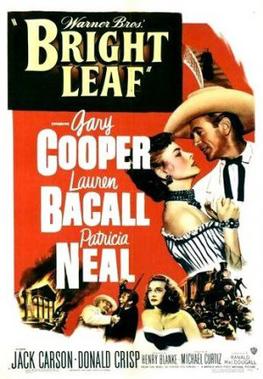
Bright Leaf is a 1950 American Drama Western film directed by Michael Curtiz and starring Gary Cooper, Lauren Bacall and Patricia Neal. It is adapted from the 1949 novel of the same name by Foster Fitz-Simons. The title comes from the type of tobacco grown in North Carolina after the American Civil War. According to Bright Leaves, a 2003 documentary film by Ross McElwee, the plot is loosely based on the rivalry of tobacco tycoons Washington Duke and John Harvey McElwee, the filmmaker's great-grandfather.
Confusions is a play by Alan Ayckbourn consisting of a series of five interconnected one-act plays. It was first staged in 1974 and played by just five actors. The scenes are all loosely linked by characters or locations, but more subtly through the common underlying themes of obsession, isolation and human desire for companionship.
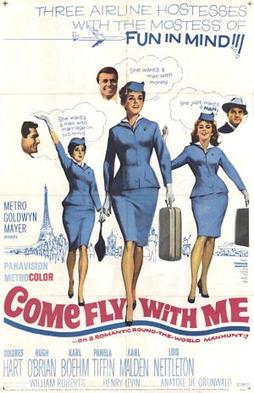
Come Fly with Me is a 1963 British Jet Age romantic comedy film directed by Henry Levin and released by MGM. Featuring an ensemble cast of Dolores Hart, Hugh O'Brian, Karlheinz Böhm, Pamela Tiffin, Karl Malden, and Lois Nettleton, it is based on Bernard Glemser's 1960 chick-lit novel Girl on a Wing, which was published again in 1969 under the title The Fly Girls. It follows three young international air hostesses looking for romance and excitement, weaving abundant soap opera elements into its tale of opportunity for glamorous travel and adventures with men that came with being an airline hostess.

Casanova Brown is a 1944 American comedy romantic film directed by Sam Wood, written by Nunnally Johnson, and starring Gary Cooper, Teresa Wright, and Frank Morgan. The film had its world premiere in western France after the Allies had liberated those territories following the D-Day Invasion. The film is based on the 1927 novel An Unmarried Father by Floyd Dell and the 1928 play Little Accident by Dell and Thomas Mitchell, which had been previously filmed by Universal Pictures in 1930 as The Little Accident and in 1939 as Little Accident.

Wide Open Spaces is a 1947 Donald Duck short cartoon, produced by Walt Disney and directed by Jack King for Walt Disney Productions and RKO Radio Pictures.

The Story of Edgar Sawtelle is the first novel by American author David Wroblewski. It became a New York Times Best Seller on June 29, 2008, and Oprah Winfrey chose it for her book club on September 19, 2008. Winfrey also included the book as one of the few tangible gifts in her recession-themed thrifty Oprah's Favorite Things that year. The same year, it was a finalist for the Art Seidenbaum Award for First Fiction.

My Fake Fiancé is a 2009 American television film starring Melissa Joan Hart and Joey Lawrence. It premiered on the ABC Family channel on April 19, 2009.
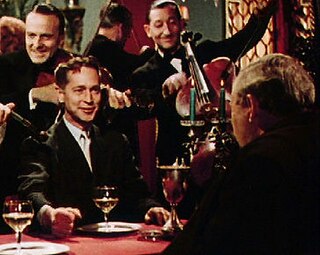
The Man on the Eiffel Tower is a 1950 American Ansco Color film noir mystery film starring Charles Laughton, Franchot Tone, Burgess Meredith, and Robert Hutton. Ultimately directed by Meredith, it is based on the 1931 novel La Tête d'un homme by Belgian writer Georges Simenon featuring his detective Jules Maigret. The film was co-produced by Tone and Irving Allen as A&T Film Productions and released by RKO Radio Pictures. Much of the outdoor action occurs in familiar Paris locales, including the Eiffel Tower, the Seine, and Pigalle.
"The Doorway" is the two-part sixth season premiere of the American television drama series Mad Men. Officially counted as the first two episodes of the season, it figures as the 66th and 67th overall episodes of the series. It was written by series creator and executive producer Matthew Weiner and directed by executive producer Scott Hornbacher. The episodes originally aired back-to-back as a feature-length premier on the AMC channel in the United States on April 7, 2013.

The Bottom of the Bottle is a novel by the Belgian writer Georges Simenon. The original French version Le Fond de la Bouteille, written in 1948 when Simenon was living in Arizona, appeared in 1949. The novel is among his romans durs, a term roughly translated as hard, or harrowing, novels; it was used by Simenon for what he regarded as his serious literary works.
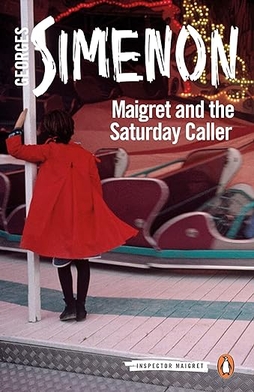
Maigret and the Saturday Caller is a novel by the Belgian writer Georges Simenon. The original French version Maigret et le Client du samedi appeared in 1962.
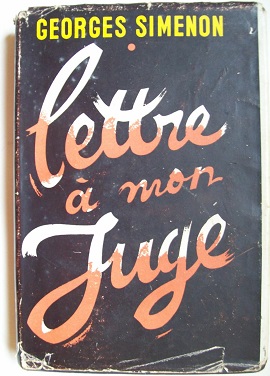
Lettre à mon juge was written by Belgian author Georges Simenon in 1946 during his stay at Bradenton Beach, Florida and published in Paris the following year by Presses de la Cité. It is a dark psychological account of a man overcome by buried passions, who becomes a murderer.
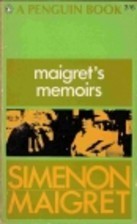
Maigret's Memoirs is a novel by the Belgian writer Georges Simenon. Unlike other Maigret novels, there is no plot; Jules Maigret himself writes about his life and work, and about his relation with the novelist Georges Simenon.


















